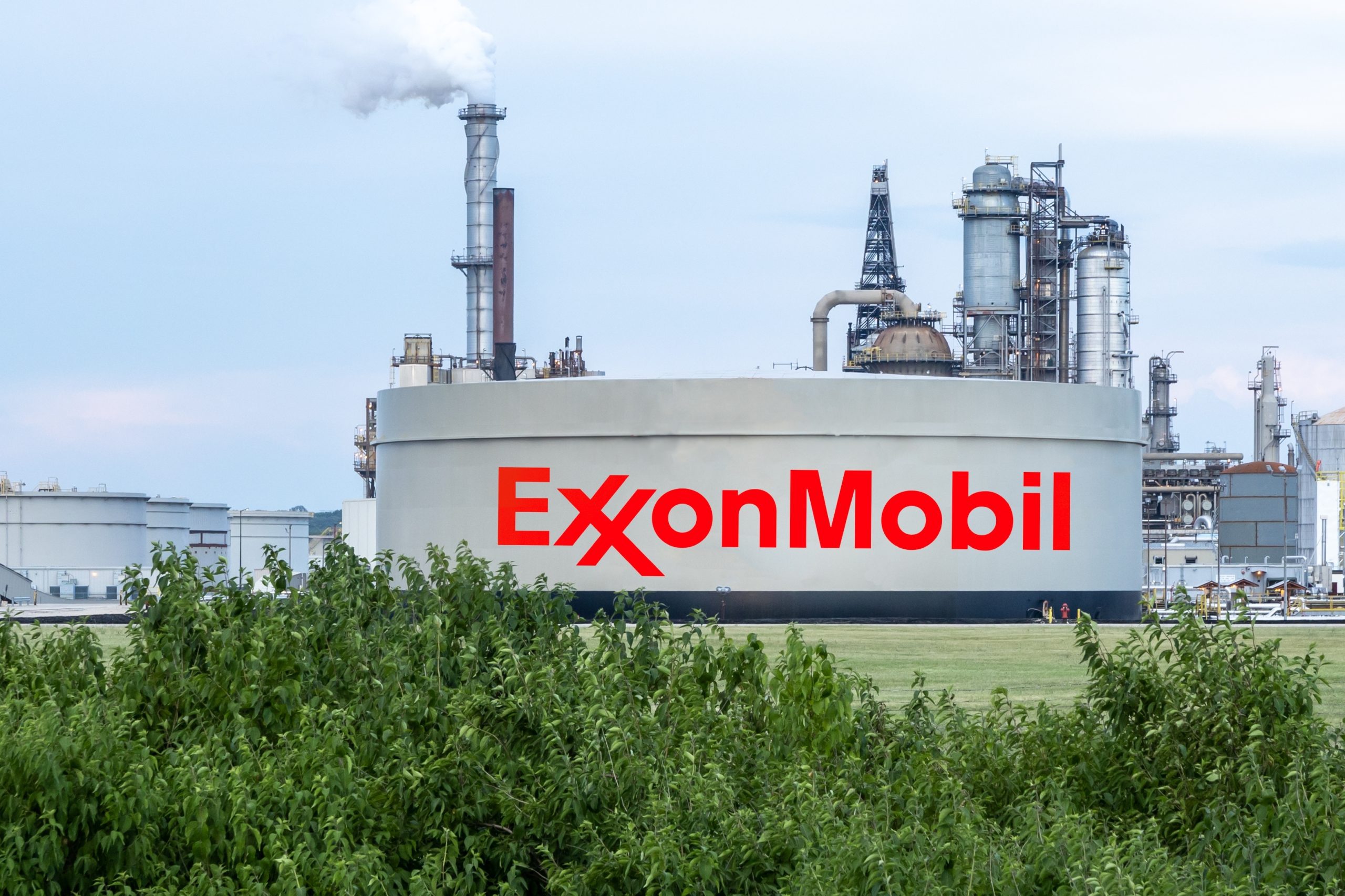Major Investors Demand Ambitious Methane Regulations in the U.S.
147 investors with $5.35 trillion in assets under management call for stronger methane regulations and enforcement
Inaction will leave investors and oil and gas companies vulnerable to climate and reputational risks
As the Biden administration prepares to revise federal methane regulations, 147 oil and gas industry investors representing $5.35 trillion in assets under management signed on to a statement calling for comprehensive regulations to curb dangerous GHG emissions — and more stringent enforcement mechanisms to back them up.
As “prudent fiduciaries”, the statement says, the signatories believe that virtually eliminating methane emissions supports the financial goals of companies and investors. “By taking action on methane emissions, government can achieve valuable greenhouse gas reductions while helping American industry become cleaner and more competitive,” it continues. In 2019, U.S. oil and gas operations emitted 16 million metric tons of methane emissions, with a near-term climate impact greater than all U.S. coal-fired power plants.
"The debate is not whether there should be methane regulations, it’s about how strong the methane regulations should be and how strongly they should be enforced.” said Brian Rice, portfolio manager, CalSTRS. “Investors and companies have a responsibility to help ensure that methane is properly regulated.”
Among the signatories include Allianz SE, CalSTRS, Legal & General Investment Management and Wespath Benefits and Investments. Read the full statement and complete list of signatories here.
In a first-day executive order, President Biden tasked the U.S. Environmental Protection Agency with considering and proposing, by September 2021, new performance standards and emissions guidelines for methane and volatile organic compounds emitted by the oil and gas industry. Through their statement, the investors called on the EPA to set a much stronger standard with mandatory regulations that apply to both existing and future infrastructure.
The statement specifically urges the EPA to set regulations that will:
- Address the full scope of all possible industry emissions, including inactive or abandoned wells
- Provide frequent monitoring to ensure rapid detection and mitigation of leaks
- Minimize venting and flaring
- Support development and deployment of innovative technologies for methane mitigation
- Achieve ambitious emission reductions in a reasonably cost-effective manner
“We favour strong methane regulations, which are widely supported across the market,” said Alexander Burr, ESG policy lead at Legal & General Investment Management. “Given technological advances, they should be low-cost to introduce and offer potentially significant benefits for society. By contrast, continuing to have a weak regulatory framework risks both the industry’s social license and shareholder value, in our view.”
Methane, the main component of natural gas, is 84 times more powerful as a greenhouse gas than carbon dioxide over the 20 years after its release. Researchers estimate that methane from human actions is responsible for at least a quarter of today’s warming, and addressing emissions from oil and gas operations offers one of the easiest and most cost-effective ways to meet U.S. climate goals. Methane-related emissions exacerbate respiratory illness and contribute to ground-level ozone and smog, increasing the risk of heart disease. These impacts hit industry workers and those living nearby to well pads and fall disproportionately on vulnerable populations and communities of color.
“There is a strong business case for setting high standards on methane emissions in the oil and gas sector,” said Luan Jenifer, president, Miller/Howard Investments. “Ultimately, ambitious standards will benefit all stakeholders—investors, businesses, communities and the environment.”
Regulations would actually help, not harm, oil and gas companies, according to the statement. A 75% reduction in global methane emissions is possible with current technology, and up to 40% of emissions could be mitigated at no net cost. Many major oil and gas companies including Jonah, Pioneer, BP and Shell have already spoken out in favor of methane regulation.
Voluntary commitments alone have not achieved meaningful reductions. Many companies lag behind industry targets, the statement explains, while mandatory regulations would provide adequate tools and incentives, as they level the playing field. Satellite technology able to detect methane leaks to a granularity of 100 square meters, including MethaneSAT and Carbon Mapper, is expected to come on line in the next two years and will make emissions detection much more effective, supporting regulatory efforts and presenting further risk for companies.
"Insufficient regulatory clarity on methane emissions is a risk to investors and businesses,” said Mary Jane McQuillen, head of ESG investment and portfolio Manager at ClearBridge Investments. “Improved regulations will ensure that all companies operate on a level playing field, while helping to insulate them from possible reputational risk.”
Whether methane escapes through venting, flares or leaks, it represents lost product and earnings for oil and gas companies, a stated concern for the investors. Additionally, weak U.S. regulations could potentially damage future domestic natural gas companies’ export opportunities as foreign governments impose standards aligned with a net-zero economy.
“There are thousands of independent oil and gas companies across the country operating millions of wells, to say nothing of the more-than three million orphaned wells that can continue to leach methane into the atmosphere,” said Andrew Logan, senior director of oil and gas at Ceres. “Without strong regulations and a level playing field, some companies will continue to perform poorly, and as larger companies spin off old assets to smaller operators, the likelihood of leaks and fugitive emissions will increase. Without methane reductions, the climate math will not work for us to reach critical targets, locally or globally. It’s that simple.”
The statement’s signatories were coordinated by Ceres and the Interfaith Center on Corporate Responsibility (ICCR). It represents another step in a decade-long effort by investors to press for effective methane regulation at the federal and state levels.
“ICCR has worked with investors for well over a decade on the negative impacts of hydraulic fracturing operations on local communities. The climate and health risks posed by unnecessary methane leakage has been central to our engagements with companies and regulators since 2015, when the Obama EPA first proposed meaningful regulation of this potent greenhouse gas,” said Christina Herman, program director for climate change & environmental justice at ICCR (Interfaith Center on Corporate Responsibility). “According to a recent U.N. report, the biggest opportunity for reducing methane lies in the fossil fuel sector, with cuts of about 60 percent possible in oil and gas emissions over the next decade. Strong methane regulations are needed now.”
About ICCR:
Currently celebrating its 50th year, ICCR is the pioneer coalition of shareholder advocates who view the management of their investments as a catalyst for social change. Its 300-plus member organizations comprise faith communities, socially responsible asset managers, unions, pensions, NGOs and other socially responsible investors with combined assets of over US$4 trillion. ICCR members engage hundreds of corporations annually in an effort to foster greater corporate accountability. Visit our websitewww.iccr.org and follow us on Twitter, LinkedIn and Facebook.
About Ceres:
Ceres is a nonprofit organization working with the most influential capital market leaders to solve the world’s greatest sustainability challenges. Through our powerful networks and global collaborations of investors, companies and nonprofits, we drive action and inspire equitable market-based and policy solutions throughout the economy to build a just and sustainable future. For more information, visit ceres.org and follow @CeresNews.








